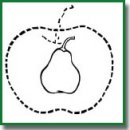
Cognitive Control of Irrelevant Stimulus Changes
It is known that psychological effects by suggestion, autosuggestion, context change, etc., can positively influence the individual’s psychological mood and health. However, the mechanisms of this impact have not been studied so far. The problem is that a psychological impact must be perceived, but a consciousness which perceives information is not able to influence the physiological processes directly.
The aim of the study was to show that a psychological impact is possible by means of the mechanisms of cognitive control which automatically checks the correctness of the execution of the tasks assigned to the consciousness (or commands given to the consciousness) and the correctness of realizing concrete operations necessary for solving a task, and to confirm experimentally the existence of such involuntary cognitive control.
Materials and Methods. The present experimental investigation was based on the modified interference task, “Picture–Picture” test, in which images of two objects are simultaneously presented to the participants, and they should identify one target image, ignoring the second. Seventy-five people aged 18–29 years (75% of women) participated in the confirmatory study. The tested subjects were to identify the object in the picture. The stimulus material also featured some irrelevant characteristics: a solid or dotted frame in which the target object was depicted.
Results. The data of the experiment have shown that regardless of the stimulus presentation order the task in the dotted frame are fulfilled longer than in the solid one (p<0.001). However, in the post-experimental interview, the subjects said that the frame had not influenced their work in any way and they had not paid any attention to it. Thus, the results obtained show that the irrelevant parameters of the object (a frame in our case) are an essential part of defining the context in which the problem is being solved. Depending on this context the processes of cognitive control verify the execution of various tasks changing the time of the response.
Conclusion. It has been established that there exist cognitive control mechanisms that verify which task is being solved by a person. It has also been shown that the initiation of such verification automatically leads to susceptibility to psychological impact and physiological changes. At the same time, this control is noted to be triggered after the task (or command) has been apperceived.
- Blasi Z.D., Harkness E., Ernst E., Georgiou A., Kleijnen J. Influence of context effects on health outcomes: a systematic review. Lancet 2001; 357(9258): 757–762, https://doi.org/10.1016/s0140-6736(00)04169-6.
- Allakhverdov V.M. The psyche and consciousness in the logic of cognition. Vestnik Sankt-Peterburgskogo universiteta. Seriya 16. Psikhologiya. Pedagogika 2016; 1: 35–46.
- Baars B.A. Cognitive theory of consciousness. Cambridge: Cambridge University Press; 1995.
- Wegner D.M. Ironic processes of mental control. Psychol Rev 1994; 101(1): 34–52, https://doi.org/10.1037/0033-295x.101.1.34.
- Stroop J.R. Studies of interference in serial verbal reactions. J Exp Psychol Gen 1992; 121(1): 15–23, http://dx.doi.org/10.1037/0096-3445.121.1.15.
- Allakhverdov V.M., Allakhverdov M.V. Stroop effect: interference as a logic paradox. Vestnik Sankt-Peterburgskogo universiteta. Seriya 16. Psikhologiya. Pedagogika 2014; 4: 90–102.
- Glaser W.R., Glaser M.O. Context effects in Stroop-like word and picture processing. J Exp Psychol Gen 1989; 118(1): 13–42, https://doi.org/10.1037//0096-3445.118.1.13.
- Damian M.F., Bowers J.S. Locus of semantic interference in picture-word interference tasks. Psychon Bull Rev 2003; 10(1): 111–117, https://doi.org/10.3758/bf03196474.
- L’vova O.V., Allakhverdov M.V. On the task control in the “drawing-drawing” test. Psikhologicheskie issledovaniya 2018; 9: 33–42.
- Zaporozhets A.V. Razvitie proizvol’nykh dvizheniy [Development of voluntary movements]. Moscow; 1960.










